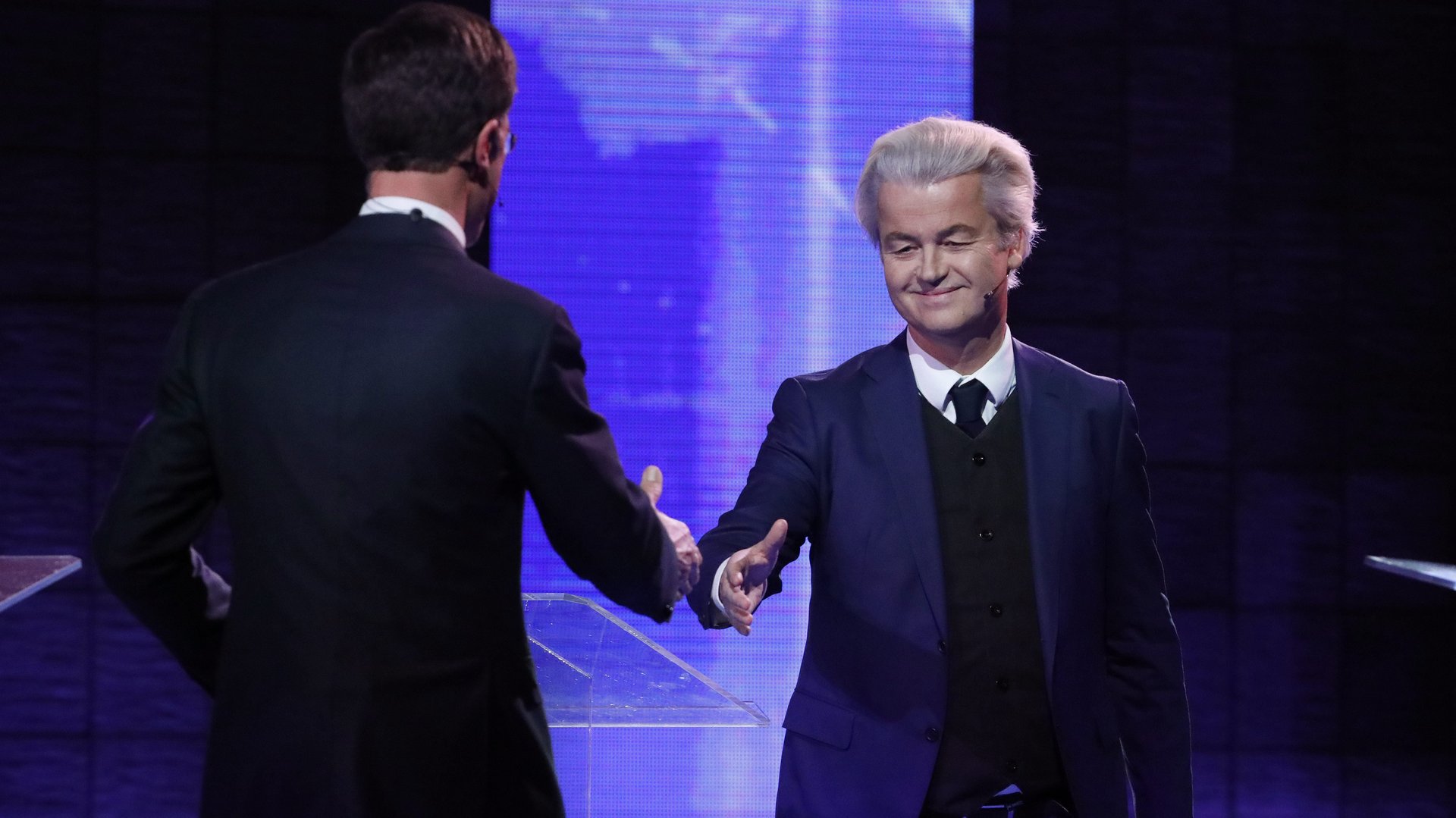The Dutch right will now have Turkey to thank if it wins the election
The move rightward in Europe is getting a helpful boost from Turkey. With hours left before the Dutch vote in their general election, a souring diplomatic dispute between the Dutch government and Turkey is lighting up Dutch right-wing voters, according to recent polls.


The move rightward in Europe is getting a helpful boost from Turkey. With hours left before the Dutch vote in their general election, a souring diplomatic dispute between the Dutch government and Turkey is lighting up Dutch right-wing voters, according to recent polls.
The Netherlands’ current center-right prime minister Mark Rutte and his leading rival, far-right leader Geert Wilders, both rose in a snap poll published Monday night, after Rutte refused to allow Turkish ministers to enter the Netherlands to campaign for the Turkish expat vote. In the Maurice De Hond poll, Rutte was projected to win 27 seats, up three seats since the last poll, which was taken before the weekend. Wilders was projected to win 24 seats, a two-seat increase.
The Dutch election, which has focused heavily on Muslim immigration, is considered a bellwether for upcoming votes across Europe. Polls have shown a tight race for first place between Rutte and Wilders, but Rutte’s party is currently projected to win the highest number of seats. The Netherlands’ Muslim Turkish population are the target of Turkish president Recep Tayyip Erdogan, who is rallying to change his country’s constitution in a referendum in April. Rutte’s halting of two foreign ministers from attending rallies sparked protests and a police crackdown in Rotterdam on March 12.
In turn, Erdogan’s response that “Nazism is alive in the West,” fueled the fire with Dutch right-leaning politicians, the day before the first national televised debate between Wilders and Rutte.
“All those people that were standing on the square with Turkish flags and showing that they are not Dutch, but Turkish,” Wilders, of the Dutch Freedom Party, said during the debate. Wilders argued the political row highlighted a much a “much bigger problem” with Dutch Turks failing to integrate into society and called Rutte a “prime minister for foreigners.” He used the moment to criticize Rutte for not taking harsher action against Turkey, while trotting out his previous demand for Turkey’s ambassador to be expelled. Anything less would be “an insult to us and our police officers,” Wilders said.
Rutte’s retort in the debate was that escalating the row with Turkey would only have made matters worse. He used the moment to cast Wilders as irresponsible for not understanding “the difference between tweeting from the sofa and running a country.” Stijn van Kessel, a politics lecturer at Loughborough University who researches populist political parties in Europe, said Rutte came across as sufficiently “tough on Turkey by not allowing this minister to speak.” The jibe won him a round of applause.
Of course, the timing of the row is opportune for Erdogan, too. His aim is to pit the West against Turkish Muslims at home and abroad in a bid to expand his presidential powers. Earlier this month, Erdogan likened the German government’s decision to cancel several political rallies to “Nazi practices.” Polls show a tight race between Turkey’s “yes” and “no” camp.